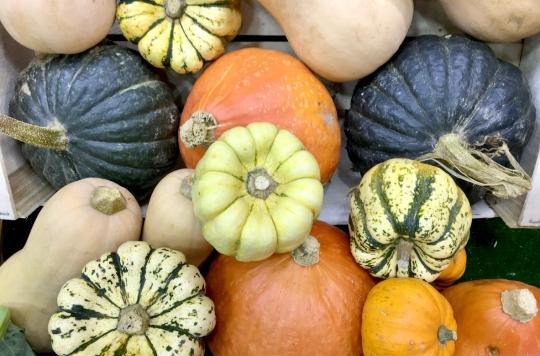Highly consumed in the fall, some squashes can cause serious food poisoning.

- When buying squash, check the label or seek advice from vendors at the point of sale.
- Before eating it, taste a small piece of raw squash and if the taste is bitter, spit it out and discard the vegetable.
In the height of the season for pumpkins, pumpkins, pumpkins, pattypan squash and other cucurbits, ANSES points out that not all squashes are edible, even if some are sold in the fruit and vegetable departments.
Decorative gourds are not edible
Some squashes are toxic and contain cucurbitacins, very irritating and bitter substances which can be responsible quickly after ingestion for digestive pain, nausea, vomiting, sometimes bloody diarrhea, even severe dehydration requiring hospitalization. These substances, which persist during cooking, are naturally produced by wild squash to repel predatory insects (caterpillars, etc.).
“This is the case of ornamental gourds such as gourds, all considered toxic, which are sold commercially (sometimes in the fruit and vegetable department) for strictly decorative use, and which should not be confused with edible gourds” , warns ANSES.
Bitter gourds should not be eaten
This is also the case for certain edible squashes grown in the family vegetable garden, which become unfit for consumption following wild hybridizations. This phenomenon occurs when bitter varieties and edible varieties coexist, in the same vegetable garden or in neighboring vegetable gardens, and the seeds are harvested and sown from year to year.
“Warning! The inedible gourds that result from this hybridization have exactly the same appearance as edible gourds, but have a bitter taste, unlike edible gourds which have a neutral or slightly sweet taste”, warn the experts.
Some practical advice
· About ornamental gourds (gourds): all toxic, they should not be eaten. Check the label or seek advice from the vendors on the premises.
· Regarding edible squash, bought in stores or grown in the family vegetable garden: taste a small piece of raw squash and if the taste is bitter, spit it out and discard the squash. It should not be eaten, even cooked.
· For squash from family gardens: do not eat wild squash that has grown spontaneously. Do not collect seeds from previous harvests to resow them either. Buy new seeds with each new seed in the vegetable garden.
.















